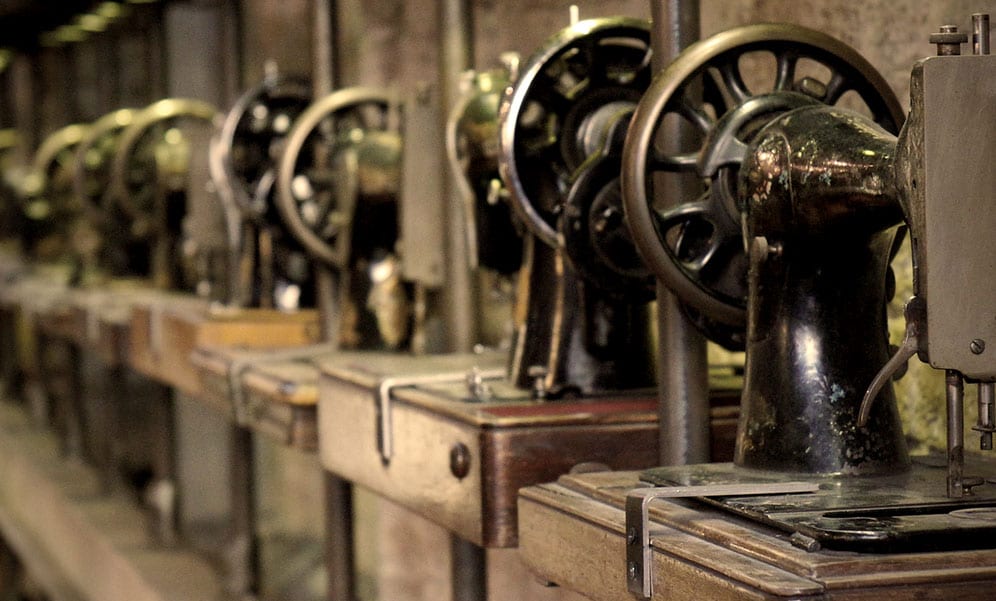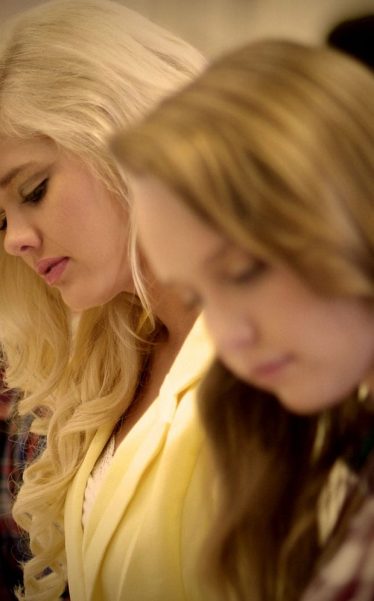Women also want to join the group and ask to be heard. They say it’s their turn both in the ideas process as well as in the future management of Pueblo Viejo, and they want to present their proposals.
What has been achieved
The lawyer starts with an introduction on the role of women in the field of social development, which makes hearts fall in love, and begins to say:

As time has passed by and even today women have achieved several social gains.
Women used to mean weakness, submission, obedience, and procreation among others. Today, woman means ability, intelligence, and organization. In short, the basis and pillars of our society.
Women have taken significant steps; beginning with the right to education, paid work, and being considered as citizens, as well as the right to vote which for some previous generations was not possible.
Women have managed to create spaces with a lot of effort, it has been an endless struggle, until the point where they have gained a percentage of gender participation in leadership positions in government.
As women improved their educational and cultural levels, as they obtained more knowledge in different areas, they became effective participants in the analysis of social problems and finding solutions. So much so that this promotion in public and private positions is a permanent reality.
All these factors have made women obtain a certain political and social prominence, which has in return influenced lawmakers to recognize legal equality with their male counterparts, especially within the family and to the detriment of the family hierarchy.
But even with the achievements made and its population, female representation in government branches remains minimal.
In this aspect, it has become evident that what is needed is a majority to change policy and the country because the important thing is to leave the “weaker sex” argument behind and to take the ideas to a political debate, especially when what we want to gain a space that allows us to position ourselves in various local, regional and national scenarios.
All of this, with a majority population in the country that has only been used on occasion to get votes, and that the parties when they incorporate women try to show a pluralism that in reality does not exist.

In the past, many women’s rights were overlooked, but nowadays, they are gaining due to the expansion of democracy and the development of equal rights and respect for women; achievements that have not been free and that have led to the search for better labor and political scenarios.
Achievements of women throughout our history
If we look at these efforts and achievements of women throughout our history, we find the following achievements of Colombian women in recent decades.
1932: Up to this year woman could not handle their property, even if they received an inheritance. Their money was managed by her husband, brother, or male guardian. With this victory, women attained economic independence.
1933: During the government of Enrique Olaya Herrera women won two important battles in education: the authorization to attend graduating high school and the possibility of entering university.
1954: Under the government of Gustavo Rojas Pinilla, political rights were recognized, a right that empowered women. They had the right to vote and to an ID. Two years after the National Constituent Assembly approved this reform, the first female ID was issued to Mrs. Carola Rojas Correa on May 25th, 1956.
1956: Josefina Valencia became the first woman who achieve a ministerial post. She was appointed by Rojas Pinilla as Minister of Communications.

1957: On December 1st of that year with 40% of voters, women voted for the first time.
1958: Emerald Arboleda was elected the first woman senator in Colombia.
1974: The Decree No. 2820 of 1974 granted equal rights and obligations for women and men.
1976: Through the 1st Act of 1976, women received the full capacity to manage and dispose of all their property was instituted.
But despite all of the achievements of the female gender, we found that the presence in the political and economic life in our country, although it is important, was far from real.
We have won important spaces in democratic life, demonstrated ability in managing public resources, been handling large economic projects, but proportionally compared to men are far from even approaching the management percentage it should be”.
A short time after, a political scientist who also is part of our generation was introduced. She spoke about the International Women’s Day celebration, to be held in the next few days in Pueblo Viejo. She wants to say what she has exclusively prepared for this event directed to the stronger gender of human life:
“When we look at history, we find that among the French Enlightenment, Condorcet was one of the creators of the ideological program of the French Revolution, the recognition of the social role of women was proclaimed. And it was precisely “The Enlightenment” that allowed, among other things, that women, before subordinated and invisible, oppressed and denied, could become contributors to the movement of social transformation that had its heyday in 1789.
From there emerged, for example, Olympe de Gouges, an equal rights advocate for men and women, both in public and in the private arena. Their approaches highly revolutionary, had to do with the vote, access to public work, property ownership, and joining the army. In drafting the rights of women and citizens, she emerged as a pioneer of so-called feminist movements that joined the revolutionary banners of equality, fraternity, and liberty.
Olympe shows his mettle when he says “If a woman has the right to get on the scaffold; You should also have the right to get on a platform”. She was finally executed by guillotine.

Social Movements
In the XIX century, women were also linked to social movements by three eights, eight hours of study, eight hours for work, and eight hours of rest. It found its peak in the deeds of the martyrs of Chicago.
In March 1911 a group of 140 young immigrant women workers-the majority of a textile factory in New York-, decided to go on strike to demand better working and physical conditions. Amidst the protest a raging fire arose, its origin was never discovered, and many were burned to death.
The tragedy had an immense impact on US labor legislation due to the horror of this tragedy and the drama and working conditions of thousands of women worldwide.
A year earlier, the Conference of Socialist Women, held in Copenhagen (Denmark), had proclaimed the International Day of Working Women to have a date that would allow them to march simultaneously in several countries to claim their rights.
In 1911, several European countries, including Switzerland, Germany, Austria, and Denmark celebrated Women’s Day. But when the fire in the factory took place, solidarity poured, and a massified commemoration was held every year since women came out to march in Russia, Western Europe, and the United States. Finally, the United Nations officially ordered set holding such a day, on March 8 every year.

When this issue is addressed, you can not ignore that in Colombia, there are many historical cases where women have been a part of huge movements. Women were central to the independence struggle. Women’s participation has always been present in the defeat of social struggles. Just to mention two historical facts: the heroines Justa Estepa and Concepcion Buenahora.
They were shot to death along with other brave freedom fighters with who, they organized the insurrection of Pore in the Llanos Orinetales (Eastern Plains), in 1809 against Amar and Bourbon Viceroy. In the era of the Llanera revolution, they were instrumental, and half of the fight was women who were loyal to both their men and their ideals, especially when it came to the defense of their rights, life, or freedom.
In this struggle for just social demands, in 1920 we have the strike by the ladies of the Textile Factory in Bello (Antioquia). Women in that company worked in inhuman conditions: barefoot, harassed by supervisors, battered by administrators who were forced to work sick, with fourteen days and hours and low “wages”. About four of them decided to stop production, while men (about a hundred) were reluctant to participate in the work stoppage.
In that strike (the first in Colombia with that name), which enjoyed popular sympathy, a leader flourished: leader: Betsabé Espinal just 24 years of age, raised her voice against the administrator of the company, Emilio Restrepo, who said: “The boss is the boss”, and called on other workers to join. It was not a social movement of sex but of labor claims. The girls, who later joined men triumphed in their requests.
Maria Cano, poet and labor leader, is one of the paradigms in linking women to popular resistance. Their participation in strikes, organizing workers, and boosting new ideas, made appointing workers the “Flower of Work”.
New scenarios
With these unique examples we see that the struggle of women for their rights leads to collective social claims. But will the long struggle of men and women be the pathway to the right recognition and to conquer new scenarios? In any case, in our country, the boundaries of gender will be decided with women’s votes, education, and fertility control.
We can say that in our country, usually in celebration of Women’s Day roses are given as a present. This comes from the slogan “Bread and Roses”, associated with the famous textile strike of 1911 in Massachusetts, where women leaders claimed the right of women to receive a fair wage and decent working conditions.
However, while recognizing the conquest of rights that women have gained over decades, sending roses, hides a frustrating and sad reality: gender equality is still a distant dream.
Our ability has shown us that we are as capable as men. That fact has led us to shape our own merits with better conditions for our family life, to be indisputable support in our homes, climb professionally in several fields, be important in the managing of public resources, to show our ability on several fronts to note that women are essential in human life.
But despite the gains we have made, gender inequality is alive and is in the “feminization” of poverty. It is more likely for a woman to be poor and hungry than a man: This is a result of multiple discriminations that exist in the education, health, and employment sectors. Internationally, women represent 70% of the poor population. They make up 66% of all jobs and produce more than half of the food that humans consume, earn only 10% of income, and own a mere 1% of global properties.
Consider the following aspects. There are more human rights violations against women. The paradox is that most states accept international regulations to prevent, combat, and punish discrimination and violence against women. They recognize that gender equality and women’s rights are human rights, which gives them the power to take legal action. Since 1979, a network of legal instruments has been consolidating a system of settled law protection. The statutes of the International Criminal Court and the tribunals show that during the armed conflict Yugoslavia and Rwanda gender crimes were held.
Concluding for the moment
Unfortunately, the increasing clarity of international law has no correspondence whatsoever in the practices of States and this is unacceptable. There is nothing inevitable regarding violence against women and nothing to gain by looking the other way. By contrast, promoting and defending the rights of women advanced societies as a whole.
But let me say, that I want a space for reflection, not of rhetoric, an invitation to my gender colleagues to have decisive leadership and sustained commitment against unfair practices and discrimination.
In regards to violence, between 15 and 44 years of age, violence is one of the leading causes of death among women. The figures are equally revealing when studies indicate that women and girls make up 80% of human trafficking. We can not ignore the fact that in armed conflicts, women are the majority of the victims of sexual violence and displacement.

In politics, international and national political power remains concentrated in the hands of men, and thus, the decision to adopt mechanisms that seek gender equity. We have achieved political rights, and working “status” through our education and skills, but that is not enough. Eliminating gender discrimination and exploitation of women and girls are essential strategies to achieve success in our fight against poverty.
In the fight for social achievements as women, we can feel defeated sometimes. But above all, I never cease to be a “workshop of people that contribute to the struggles and social transformations. It has been said that women hold up half the sky. But in reality, we are heaven itself.”


